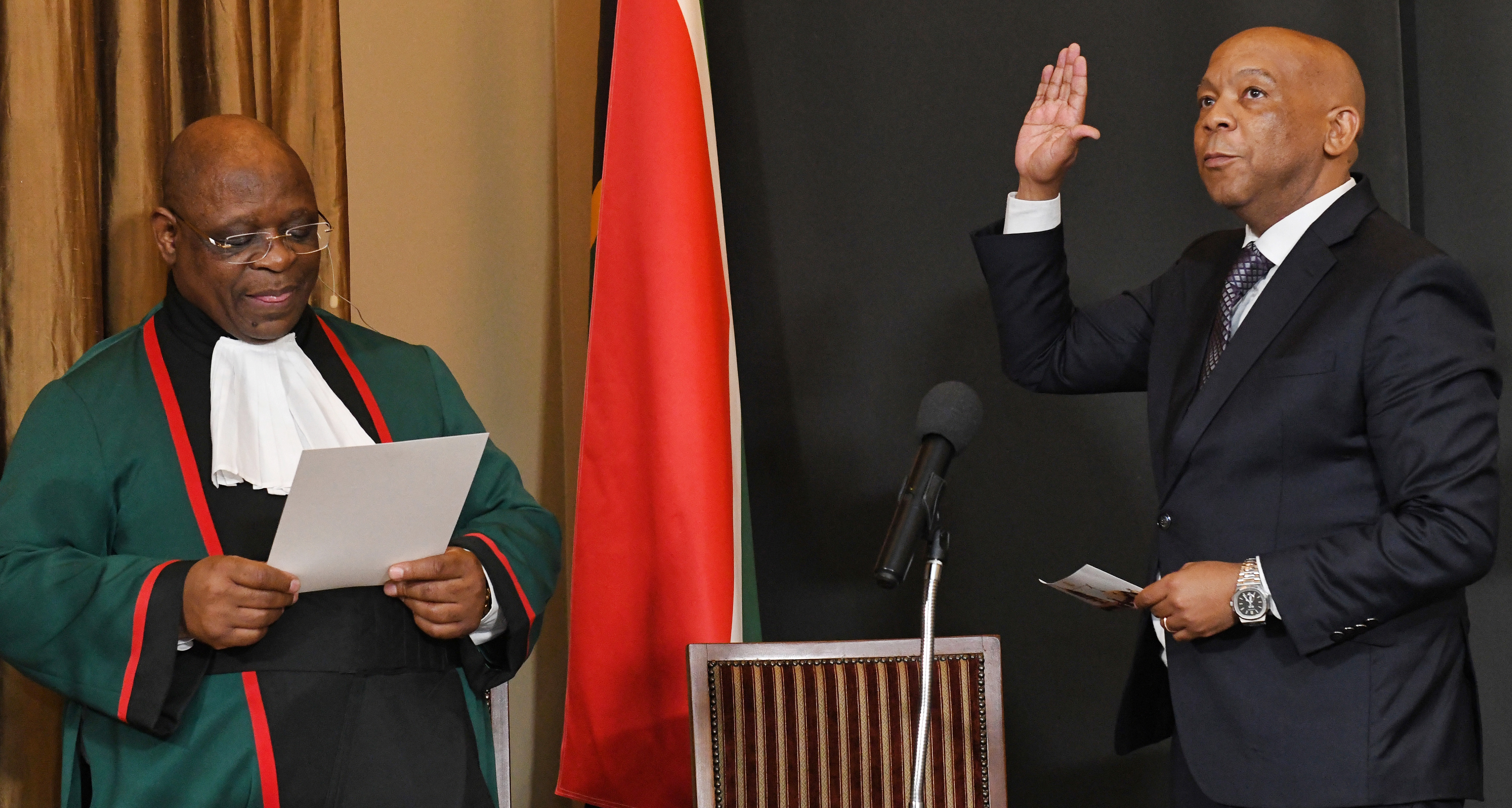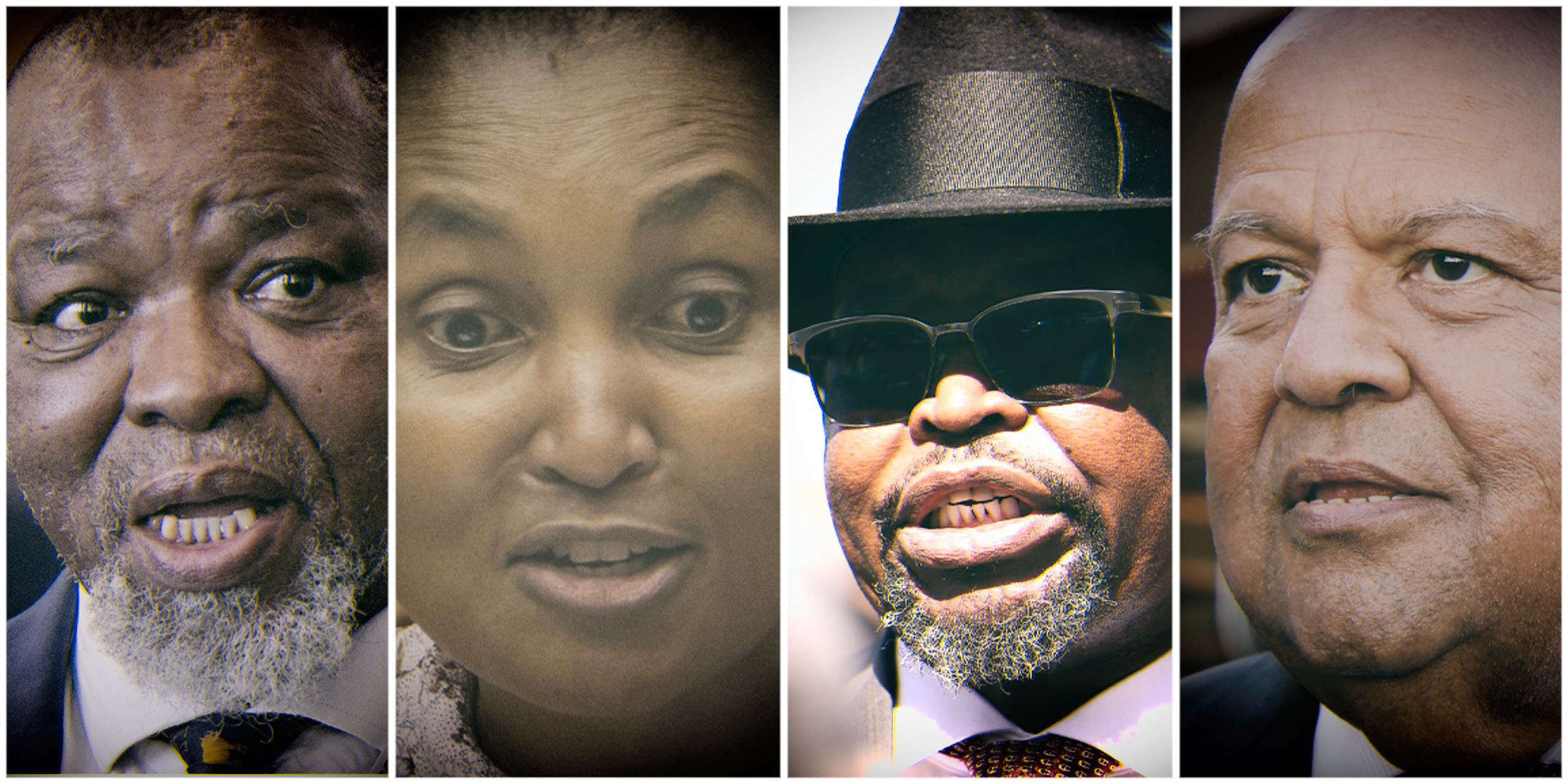Home › Forums › A SECURITY AND NEWS FORUM › Mission impossible: Does Ramaphosa’s new electricity czar have enough of a spark to end rolling blackouts?
- This topic is empty.
-
AuthorPosts
-
2023-03-12 at 16:24 #396617
 Nat QuinnKeymaster
Nat QuinnKeymasterSince Kgosientsho Ramokgopa’s appointment, there have been questions about whether he’s the right person for the job and whether he will inject new energy for delivery in President Ramaphosa’s largely uninspiring Cabinet. Importantly, people want to know his ideas on easing or ending the power crisis, especially after he struggled in the infrastructure realm.
Kgosientsho Ramokgopa, President Cyril Ramaphosa’s new electricity czar, is faced with fixing a problem that no one has been able to resolve in the past 16 years: end rolling blackouts or diminish their severity.
In his long-awaited Cabinet reshuffle, which was mostly regarded as deeply disappointing for its lack of dramatic changes to a largely ineffective Cabinet, Ramaphosa revealed that Ramokgopa would be appointed as his first Minister of Electricity.
There are a lot of expectations resting on Ramokgopa’s shoulders. He now has the herculean task of easing the pain of blackouts by overseeing efforts to fix Eskom and ensuring that newly generated electricity is connected to the national grid for the first time since 2018. After all, time is running out for South Africa to turn the corner on the electricity front.
In the same week that Ramokgopa’s new job was announced, it was revealed that the economy had shrunk by 1.3% in the last three months of 2022, far more than was expected. Business confidence levels had also sunk to the lowest level in two years, indicating that business owners are growing pessimistic about economic conditions in South Africa. And S&P Global unexpectedly downgraded South Africa’s credit rating, lowering the country’s chances of ever digging itself out of “junk” status.
All these negative economic developments have been caused by rolling blackouts, which have become a permanent fixture – the last respite the nation has had from power outages was on Christmas Day 2022.
Since Ramokgopa’s appointment, there have been questions about whether he’s the right person for the job and will inject new energy for delivery in Ramaphosa’s largely uninspiring Cabinet. Importantly, people want to know his ideas on easing or ending the power crisis.
DM168 asked Ramokgopa for an interview after his appointment was made public. On Tuesday, he committed to an interview for Thursday, but failed to honour it. His phone was switched off. Not an encouraging sign for a person we expect to keep us switched on.
Regardless, DM168 canvassed the views of industry players from energy, business, politics and labour. Some of them have worked with Ramokgopa and could offer an assessment of his track record and approach to governance.
The response was mixed, with some giving him the benefit of the doubt, saying he might have some success in the new job, whereas others felt deeply sceptical because of his chequered past in government.
About Minister Sparky
Ramokgopa is one of Cabinet’s most highly qualified people, and holds three degrees: a PhD in public affairs and degrees in civil engineering and public administration, according to his LinkedIn profile. His experience in government includes being the mayor of Tshwane from 2010 to 2016, when he oversaw several governance scandals, in particular a finding by the Auditor-General in June 2016 that the City had spent irregularly on a contract to a company called PEU for prepaid electricity meters.
The business rights watchdog AfriSake (now Sakeliga) challenged the entire deal, worth more than R1-billion, in the high court in Pretoria, which found the contract between the City and PEU to be unlawful and constitutionally invalid. A subsequent investigation by the Public Protector in 2017/18 also found the contract in violation of the Constitution.
After the 2019 general election, Ramokgopa had a short stint as MEC for economic development and agriculture under the then Gauteng premier David Makhura.
Ramokgopa is Ramaphosa’s trusted aide and has worked closely with him in the corridors of the Presidency. Most recently, he had been Ramaphosa’s adviser on infrastructure projects in the Presidency, tasked with mobilising public and private sector players to collaborate in ramping up infrastructure investments to grow the economy and create jobs.
Realising that the government had neglected infrastructure investments over the previous 14 years – including delivering water to communities, building bridges in rural areas, and towers that promise high-speed internet access for public schools and hospitals – Ramaphosa, in 2019, created an investment and infrastructure office in the Presidency headed by Ramokgopa.
After all, during this time, South Africa had moved further away from the National Development Plan’s goal for fixed capital investments (including infrastructure investments) to reach 30% of GDP by 2030. From a level of 22% of GDP in 2008, fixed capital investment levels fell to 20.3% in 2015 and further down to 17.9% in 2019. It was at a new low of 13.1% in 2021.

Chief Justice Raymond Zondo swearing in Minister of Electricity Kgosientsho Ramokgopa at a ceremony in Cape Town, 7 March 2023. (Photo: Elmond Jiyane / GCIS)
Enthusiasm but little progress
Ramokgopa’s office embraced Ramaphosa’s goal of the government spending at least R100-billion on infrastructure projects over three years and ensuring that they are shovel-ready. This goal has not been achieved.
In about three years, Ramokgopa’s office – working with development finance institutions such as the Development Bank of Southern Africa as well as private sector players – has come up with about 13 infrastructure projects worth R48.8-billion. These have raised funding but have not been delivered on the ground. This is largely what Ramokgopa’s office has to show.
Someone who worked closely with Ramokgopa in his infrastructure office says there was increasing unhappiness in the Presidency in 2022 with his lack of progress. “He [Ramokgopa] is a triumph of public relations and hot air over action, with continual trips around the world that have delivered nothing on infrastructure projects.”
Commercial banks and other financiers were also increasingly fed up with unfulfilled promises made by Ramokgopa’s office to reduce government red tape and improve its capacity to break new ground on infrastructure projects.
There simply aren’t a lot of engineers and project managers in local government and provinces to initiate and manage projects, which means South Africa has few or no new infrastructure projects to fund or showcase to private sector investors.
“Banks were fed up with sitting in the same endless quarterly meetings [with Ramokgopa’s team] and with no bankable infrastructure projects and no movement,” the insider said.
Ramokgopa’s defenders say he was able to bring public and private players together, creating collaborative opportunities – something that is still new in government circles.
Major hurdles ahead
Considering that Ramokgopa largely struggled in the infrastructure world, he will arguably face more challenges in electricity generation, which is fraught with politics and vested interests.
In fixing the electricity crisis, he will have to contend with Public Enterprises Minister Pravin Gordhan (in charge of Eskom’s governance affairs), Mineral Resources and Energy Minister Gwede Mantashe (who has powers to procure additional electricity from coal, nuclear and renewable energy sources) and Finance Minister Enoch Godongwana (in charge of restructuring Eskom’s R423-billion debt). He will also have to deal with the Eskom board (reporting to Gordhan), a yet-to-be appointed Eskom CEO and newly appointed Cooperative Governance and Traditional Affairs Minister Thembi Nkadimeng (in charge of the recently published state of disaster regulations on the electricity crisis).
It’s a case of having too many cooks in the kitchen on the energy matter, says Chris Yelland, energy analyst at EE Business Intelligence. “This is a complex governance structure and explains why decision-making on energy has taken a lot of time. Now we are adding a fifth minister [for electricity] to the mix. It will make the reporting and accountability lines more complex.”
This is because most of the ministers involved have opposing views on the direction of Eskom and the country’s energy policy. Mantashe is deeply suspicious of the renewable energy industry and favours the coal industry, and sees the state playing a big role in the running of coal-fired power stations.
Meanwhile, Godongwana wants Eskom’s coal-fired power stations to be concessioned to private operators. Though open to renewable energy sources, Gordhan is seen as a micromanager who tends to be involved in the day-to-day running of Eskom, going against best governance practices.
“If you have a big problem like load shedding, you sometimes have to break it down into different responsibilities and allocate those responsibilities to different people. That would be a good response if all ministers were on the same page, with a clear, common and coordinated vision for fixing the power situation. But the ministers are not on the same page,” says Yelland.
Ramokgopa might also have opposing ideas, but his first remarks after being sworn into Cabinet were that he didn’t have a new plan. He was there to implement Ramaphosa’s energy emergency plan, which was announced in July last year and is premised on procuring more energy from independent power producers and improving the performance of Eskom’s power stations.
He refused to give a timeline for when he thinks blackouts might end, saying it would be “irresponsible” to make such predictions. But his colleagues have proffered such predictions, with ANC Secretary-General Fikile Mbalula and Godongwana saying rolling power outages could end in the next nine to 18 months.

From left: Gwede Mantashe, Minister of Mineral Resources and Energy. (Photo: Gallo Images / Brenton Geach) | Thembi Nkadimeng, Minister of Cooperative Governance and Traditional Affairs. (Photo: Jaco Marais) | Finance Minister Enoch Godongwana. (Photo: Gallo Images / Ziyaad Douglas) | Minister of Public Enterprises Pravin Gordhan. (Photo: Gallo Images / Victoria O’Regan)
Powers that are yet to be
Ramaphosa has pledged to transfer constitutional powers to Ramokgopa, empowering him to make decisions on energy matters and taking some powers away from Gordhan and Mantashe.
The new State of Disaster regulations give the government the authority to transfer or assign any responsibilities from one minister to another. But it is unclear what Ramokgopa’s role is, considering that Ramaphosa has not yet gazetted the powers of the new electricity minister or any power transfers from Gordhan and Mantashe.
DM168 understands from a Presidency insider that Ramokgopa will be responsible for the day-to-day operations of Eskom, including bringing an end to blackouts and implementing Ramaphosa’s energy plan.
But Gordhan will still have a say in efforts to restructure Eskom’s operations, including completing the power utility’s unbundling into three parts (especially establishing a transmission company called the National Transmission Company of South Africa), and the power utility embracing the just energy transition programme.
Mantashe will still be responsible for the procurement of additional energy as well as overseeing state-owned enterprises such as the Central Energy Fund, SA Nuclear Energy Corporation, Petro SA, and the regulatory affairs of Nersa.
Organised business and labour were against the introduction of a ministry for electricity, seeing it as a duplication of existing roles in Ramaphosa’s bloated Cabinet.
But Cas Coovadia, the CEO of Business Unity South Africa, the country’s largest business organisation, says he’ll judge Ramokgopa on the implementation of the proposed plans to end blackouts, which Mantashe has allowed to drift.
Matthew Parks, the parliamentary coordinator for trade union federation Cosatu, agrees with Coovadia. “We cannot grow the economy or reduce unemployment with 10 hours of load shedding a day. Eskom needs to be given all the support it requires to end load shedding.”
SOURCE:Mission impossible: Does Ramaphosa’s new electricity cz… (dailymaverick.co.za)
-
AuthorPosts
- You must be logged in to reply to this topic.
